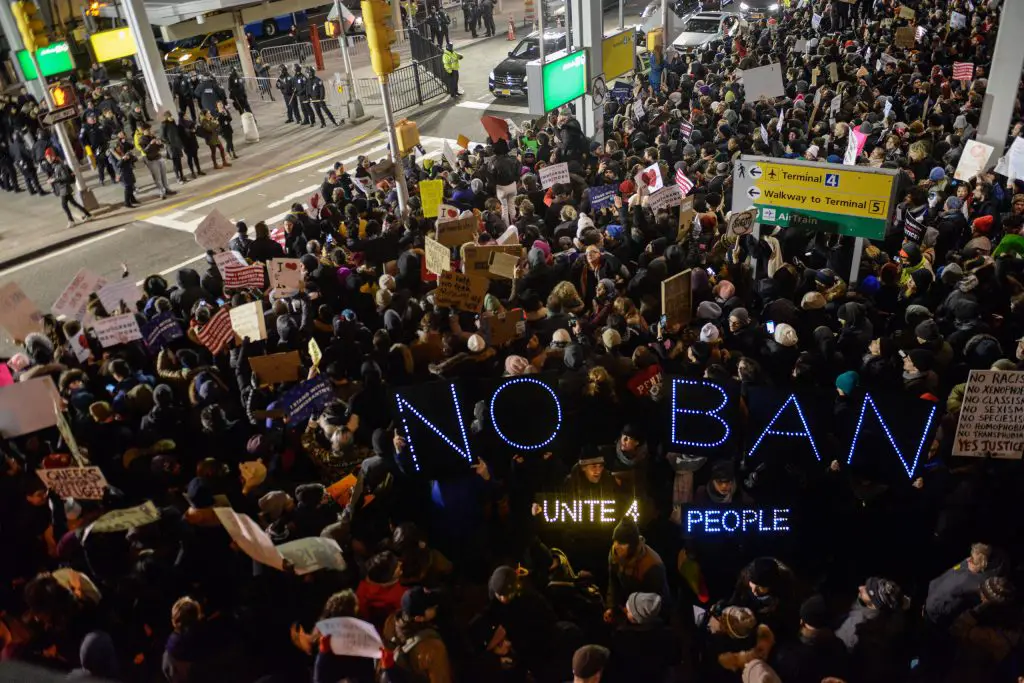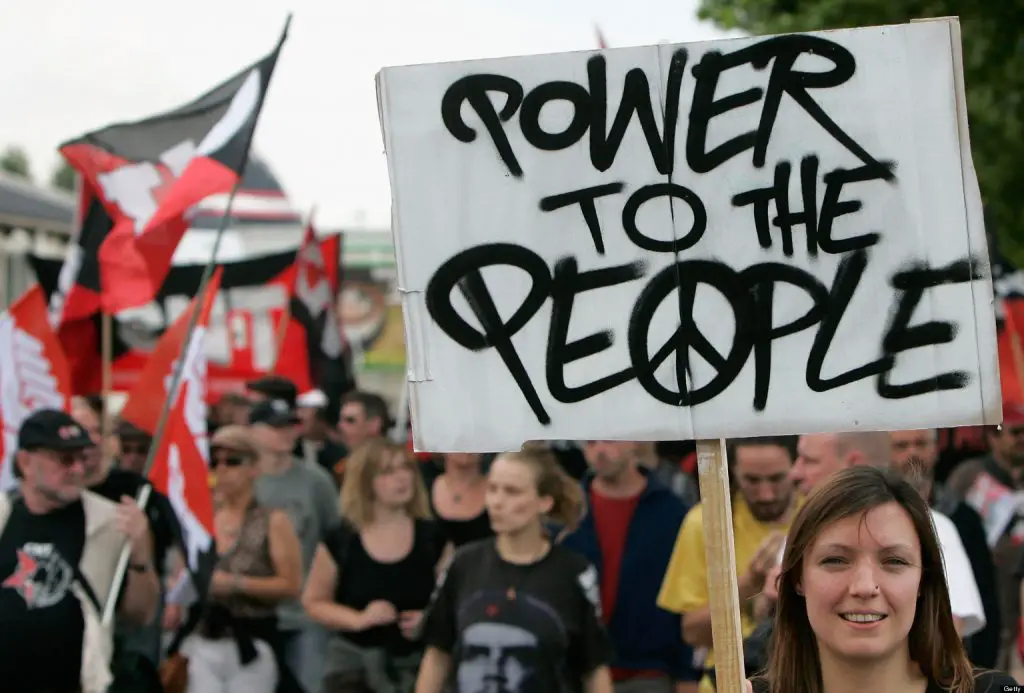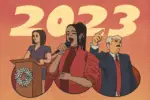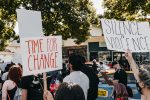Choose a Side
Does neutrality in the face of injustice mean you have chosen the side of the oppressor?
By Shannon Mondesir, Brooklyn College
There is a long and extensive history of protesting in the United States, and the act is still alive and well in this modern era, where thousands and thousands of people walk down the streets in fervent protest for the issues they deem fit.
Recently, President Trump’s Muslim Ban has incited protests at airports and down the streets of major cities, leading to widely shared anti-ban articles and memes on Facebook. Since November, when Donald Trump was elected president, there has been an eruption of teach-in workshops, social activism meetings and calls to make college campuses into sanctuaries in order to protect the students who are in danger of their visas being ripped from them and forced to return to their home countries. Outraged as these millennials are, their voices need to be heard, and justice needs to be served. Protestors will not stop until it happens.
Of course, there is an opposing side to this issue, those who stand with Trump’s legislations and believe that the country is in no fear of tarnishing the values that have been endowed in America’s Constitution since its birth. Some adversaries taunt the protestors and argue with the opposing side on social media sites, defending the acts that have been going on in the United States since Trump took office.
Then, there are the people in between. This can be a good friend that you’ve noticed has never contributed to any conversation pertaining to the state of the country, a coworker who does not join the rest of the staff after work to go to the protest in Bryant Park, someone who did not vote in the election or is not up to date with political announcements or rumors.

Desmond Tutu, admired South African social-justice activist, has notably said, “If you are neutral in situations of injustice, you have chosen the side of the oppressor.” Many millennials would agree with this statement. “How can’t you feel mad about what’s happening?” they may ask. “It isn’t impossible for you to choose a side. If you’re a good person, the choice should be clear!”
Is there really a right way to protest? Are Americans who see these deplorable acts and do not outwardly express indignation on the side of injustice? Is it indeed possible to stay neutral?
There are many different ways to look at this. During the famous riots and marches in American history, from the Boston Tea Party to the March on Washington in 1963 to the protest against the Iraqi War in 2002, we can deduce through that not everyone participated in these happenings. Is it conceivable that not all people who felt personally affected by these acts felt compelled to attend the meetings or join the crowds?
Of course it is. Fear. Discomfort. Uncertainty. These reasons may not pacify the proactive protestors, but these can be tangible reasons for some citizens to remain neutral.
There are also individuals who find issues with how people choose to protest. There have been heavy debates on whether it is right for protestors to sabotage nearby businesses as they march, businesses that have nothing to do with what they are marching for. Other people defend these actions, saying that no one should try to displace the taking out of an individual’s anger. “They are angry for a reason,” liberal millennials say. “If he or she wants to smash windows, why can’t they?”
If defacing the front of an innocent business owner’s establishment is acceptable, how is it not acceptable to, while carrying the same beliefs as that protestor, not engage in this riot at all? What if people choose to protest in ways not as outrageous as this, such as seeing an act of hate and stepping in to stop it? What if some Americans do not share or read any political articles on Facebook, but make sure to vote for a local congressman who preaches against hate and discrimination and will make a difference in their county? A small step, but a step nonetheless.

It isn’t right to judge the way someone chooses to protest.
To the citizens who claim that they do not have a side in this issue at all, if you see someone calling out racial slurs to a passerby of an ethnic background, you must have some opinion about it. It was either right or wrong. If a gay man is being harassed on a street corner, prodded and yelled at, you cannot continue walking to your car with no judgment. There is no way to mask a hate crime.
To stay neutral when there are obvious signs of injustice around you does not mean that you do not have an opinion. This is not an average case of “Coke or Pepsi?” or “Sprite or Mountain Dew?” The obvious is in front of you, and if you are not outraged by the disgraceful situations you witness, it is clear which side you are on.
Martin Luther King, Jr. has also commented on the act of neutrality, claiming that “he who accepts evil without protesting against it is really cooperating with it.” This brings us back to our original questions: Is there a right way to protest? Is it possible to be neutral in the face of injustice? There is no real answer.
This is not a response most people would accept, but it is important to understand that not everyone is the same, therefore not everyone will protest the same and everyone has the right to his or her own opinion.
Attending marches does not mean you are making more of a difference than those who choose to educate the people around them or share articles on Facebook. The smallest act of protest can make a world of a difference. Whether you choose to accept a person’s opinion that differs from your own is up to you. Just as every person has the right to act and say how he or she feels, you also have the right to rebuke it.

















